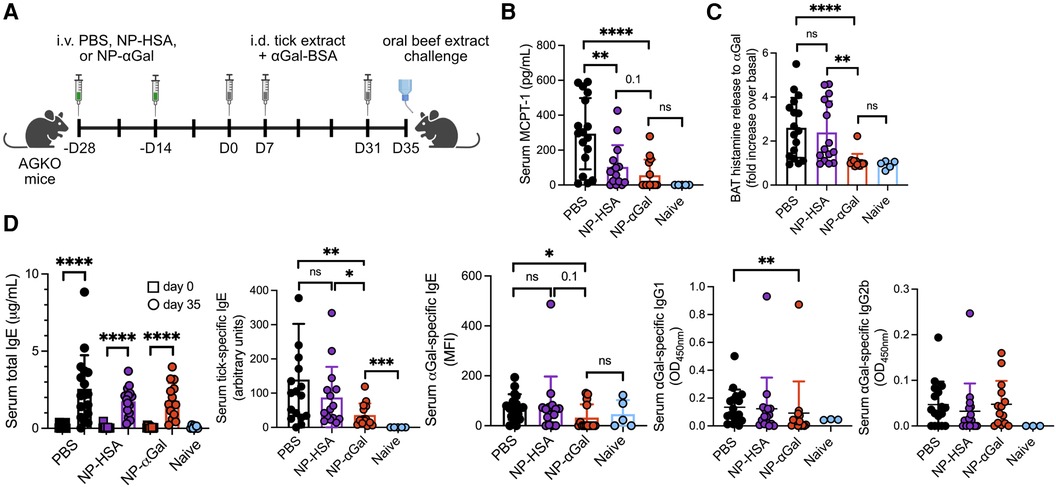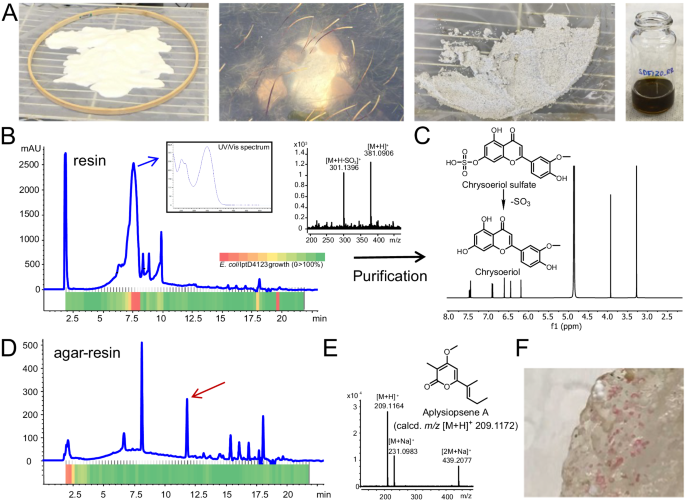2024-08-12 ミシガン大学
<関連情報>
- https://news.umich.edu/tick-borne-red-meat-allergy-prevented-in-mice-through-new-nanoparticle-treatment/
- https://www.frontiersin.org/journals/allergy/articles/10.3389/falgy.2024.1437523/full
ガラクトース-α-1,3-ガラクトースオリゴ糖をカプセル化した生分解性ナノ粒子による免疫療法は、α-Gal症候群モデルマウスにおけるα-Gal感作に対する免疫寛容を増強する
Immunotherapy with biodegradable nanoparticles encapsulating the oligosaccharide galactose-alpha-1,3-galactose enhance immune tolerance against alpha-gal sensitization in a murine model of alpha-gal syndrome
Michael N. Saunders,Claudia M. Rival,Mahua Mandal,,Kayla Cramton,Laila M. Rad,Katarzyna W. Janczak,Laura A. Williams,Amogh R. Angadi,Jessica J. O’Konek,Lonnie D. Shea,Loren D. Erickson
Frontiers in Allergy Published:09 August 2024
DOI:https://doi.org/10.3389/falgy.2024.1437523

IgE antibodies against the mammalian oligosaccharide allergen galactose-α-1,3-galactose (αGal) can result in a severe allergic disease known as alpha-gal syndrome (AGS). This syndrome, acquired by tick bites that cause αGal sensitization, leads to allergic reactions after ingestion of non-primate mammalian meat and mammalian-derived products that contain αGal. Allergen-specific immunotherapies for this tickborne allergic syndrome are understudied, as are the immune mechanisms of allergic desensitization that induce clinical tolerance to αGal. Here, we reveal that prophylactic administration of αGal glycoprotein-containing nanoparticles to mice prior to tick protein-induced αGal IgE sensitization blunts the production of Th2 cytokines IL-4, IL-5, and IL-13 in an αGal-dependent manner. Furthermore, these effects correlated with suppressed production of αGal-specific IgE and hypersensitivity reactions, as measured by reduced basophil activation and histamine release and the systemic release of mast cell protease-1 (MCPT-1). Therapeutic administration of two doses of αGal-containing nanoparticles to mice sensitized to αGal had partial efficacy by reducing the Th2 cytokine production, αGal-specific IgE production, and MCPT-1 release without reducing basophil activation or histamine release. These data identify nanoparticles carrying encapsulated αGal glycoprotein as a potential strategy for augmenting αGal-specific immune tolerance and reveal diverse mechanisms by which αGal nanoparticles modify immune responses for established αGal-specific IgE-mediated allergic reactions.


